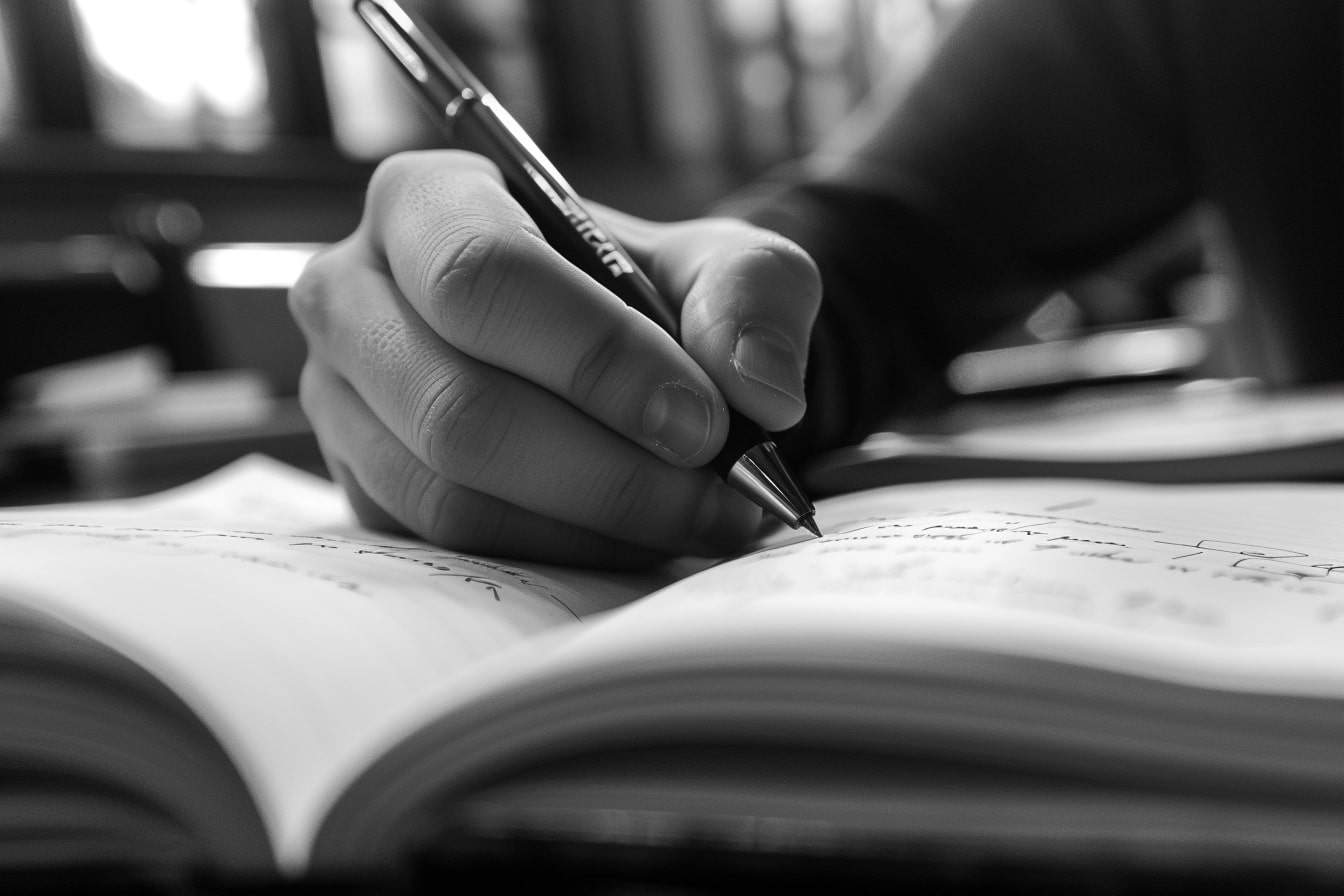Editing an eBook ensures your work is clear, polished, and professional. However, there are different types of editing for books, each serving a unique purpose. Understanding these types helps you choose what your eBook needs. This guide will walk you through the main types of editing and why they matter. Let’s dive in!
Developmental Editing
Developmental editing is the first type of book editing. It’s all about the big picture, focusing on your story’s structure and content.
A developmental editor looks at your entire book. They’ll check if your plot makes sense and if your characters are well-developed. They also look at pacing, ensuring your story flows smoothly from beginning to end.
Think of a developmental editor as a coach when editing your e-book. They help you shape your story into its best form. They might suggest major changes, like adding or removing chapters. Or they might advise on smaller tweaks. For example, improving dialogue or deepening characters’ backstories.
This type of book editing is crucial if you’re unsure about your story’s direction. It helps you fix any major issues before moving on to other kinds of editing.
Substantive Editing
Substantive editing, also known as content editing, digs deep into your manuscript. It’s different from developmental editing but just as important. While developmental editing looks at the big picture, substantive editing focuses on the details within it.
A substantive editor checks your book’s content and organization. They ensure your ideas are clear and logical, even if you write a light novel. They look at your writing style and make sure it’s consistent throughout the book. This type of editing improves readability and coherence.
Substantive editors may suggest changes to improve clarity, reorganize paragraphs or chapters to improve flow and help refine your voice and tone, guaranteeing it suits your target audience.
You’ve finished the first draft. You feel your story is solid but needs polishing. Substantive editing is the next step. It helps to ensure your message is clear and your book engages from start to finish.
Copyediting

Copyediting is about fixing the small stuff. It happens after your book’s content is solid. This type of editing focuses on grammar, punctuation, and spelling, which you can do using online text editors.
A copyeditor checks your manuscript for errors. They correct typos, fix punctuation, and ensure you follow grammar rules. They also look for consistency. For example, if you spell a character’s name differently in different places, they’ll catch it.
Copyediting also improves readability. A copyeditor will make sure your sentences are clear and easy to understand. They’ll fix awkward phrasing and ensure your writing flows smoothly.
Think of copyediting as a final polish. It makes your book look professional. After all, you don’t want readers distracted by mistakes. Copyediting is the next step if you’re ready to make your manuscript shine.
Line Editing
Line editing is all about the details of essential story writing. It’s different from copyediting but just as important. This type of book editing focuses on how you write, not just what you write.
A line editor looks at each sentence. They make sure your writing is clear and engaging. They check your word choice and sentence structure. They ensure your writing has a good flow and rhythm.
Line editing improves your style and tone. It helps make your voice stronger. A line editor will suggest changes to make your sentences more effective. They might help you tighten your writing by cutting unnecessary words.
If you want your writing to be smooth and polished, line editing is key. It takes your manuscript to the next level. This type of editing helps make your book more enjoyable to read.
Proofreading
Proofreading is the last step in the editing process. It’s all about catching the final mistakes. After editing your book, a proofreader or any free text editor goes through it again.
A proofreader looks for typos and minor errors. They fix spelling mistakes, check punctuation, and correct any formatting issues. This final check ensures your book is perfect before it’s published.
Proofreading is important because even minor errors can distract readers. You want your book to look professional, and a proofreader ensures nothing is overlooked.
Think of proofreading as a safety net. It catches any mistakes that slipped through earlier stages of editing. If you’re ready to publish, don’t skip this step. Proofreading gives your book a final polish and ensures it’s ready for readers.
Technical Editing
Technical editing is crucial for nonfiction, technical, and academic eBooks. It’s different from other types of editing because it focuses on information accuracy and clarity, which AI tools can excel in.
A technical editor checks your facts and figures. They ensure your information is correct and reliable. They also make sure your explanations are clear and understandable. This type of book editing is essential for complex subjects.
Technical editors also look at citations. They make sure all sources are appropriately credited to help avoid plagiarism and adds credibility to your work.
Technical editing is necessary if you’re writing a technical or academic book. It ensures your content is accurate and easy to understand, helping make your eBook a trustworthy resource for readers.
Fact-Checking

Fact-checking is critical in the editing steps of publishing a book, especially for nonfiction eBooks. This stage involves careful checking and covers all factual information in the manuscript, such as dates, stats, events, data, and other details.
The role of a fact-checker is to scrutinize every assertion and reference within the eBook. They cross-reference information against reliable sources to ensure its accuracy and reliability. This process strengthens the eBook’s credibility. It also guards against spreading misinformation or inaccuracies. These could undermine the author’s authority.
Fact-checking is crucial in fields like history, science, politics, and journalism. In these fields, the accuracy of information can significantly impact readers’ understanding and trust. Fact-checkers verify facts. They help authors keep their work reliable, making it more valuable as a trusted resource for readers.
Sensitivity Reading
Sensitivity reading focuses on cultural and social sensitivity in your eBook, which you must adhere to before publishing it.
A sensitivity reader checks for representation and diversity. They look at how different groups are portrayed in your book, that includes race, gender, sexuality, disability, and more. Their role is to flag any stereotypes or biases. They provide feedback on how to improve representation and avoid harmful stereotypes.
Sensitivity reading ensures your book is respectful and inclusive. It helps you avoid unintentional offense and promotes an accurate portrayal of diverse experiences.
Sensitive reading is essential if your eBook touches on sensitive topics or includes diverse characters. It ensures that your book resonates positively with all readers.
Choosing the Right Type of Book Editing
You have gone through writing your book. Choosing the correct type of editing for your eBook is the next crucial decision that can significantly impact its quality and readers’ reception.
First and foremost, assess your manuscript’s specific needs. Determine whether your eBook requires comprehensive restructuring and development or simply needs a final polish to correct grammar and style.
Consider your budget when selecting these types of editors for books. Different types of editing vary in cost, with developmental editing generally being more intensive and thus more expensive than copyediting or proofreading. However, investing in the appropriate level of editing ensures that your eBook meets professional standards and is well-received by your target audience.
Timing is another important factor to consider. Some types of editing, such as developmental or substantive editing, can take longer due to the depth of analysis and feedback involved. Plan your editing timeline accordingly to meet your publication deadlines without compromising quality. You could utilize editing software to help you do some pre-editing yourself before hiring a professional.
Finding the right editor for your eBook is essential. Look for someone with experience in your genre who understands your writing style and vision for the book. A skilled editor enhances the clarity and coherence of your manuscript, respects your creative voice, and provides constructive feedback and improvements.
By carefully considering your eBook’s needs, budget, and timeline and finding the right editor, you can ensure that your final product is polished, professional, and ready to captivate your readers. Choosing the correct type of book editing is a strategic decision that contributes significantly to your eBook’s success in the competitive digital marketplace.
Crafting Your Perfect eBook: The Power of Professional Editing
Mastering the art of eBook editing is key to crafting a successful and impactful digital publication. Each type of editing plays a vital role in refining your manuscript, from shaping its narrative arc and enhancing its clarity to ensuring grammatical precision and factual accuracy.
Investing in professional editing services is not just about correcting errors; it’s about elevating your work to its fullest potential before publishing your book. By choosing the right type of editing tailored to your manuscript’s needs, you ensure that your story resonates with readers on a deeper level.
Whether it’s developmental editing to refine plot and character development, substantive editing to polish content and style, or copyediting and proofreading for meticulous grammar and error correction—each stage contributes to creating a cohesive and compelling reading experience.
Moreover, navigating the editing process involves strategic decision-making regarding budget and timeline and finding the right editor who understands your vision. This partnership is essential in preserving your unique voice while enhancing your eBook’s professional quality and marketability.
In conclusion, embracing the nuances of eBook editing—from conceptual refinement to final proofreading—positions your work for success in the competitive digital landscape. By prioritizing quality and attention to detail throughout the editing journey, you empower your eBook to captivate, inform, and inspire readers around the world.
SOURCES
At Voxtury, we prioritize using high-quality sources, including peer-reviewed studies, to ensure our articles are accurate, reliable, and trustworthy. To learn more about our commitment to quality and how we fact-check our content, please visit our editorial process page.
- Indeed – What Is Developmental Editing? (With Definition and Tips)
- Beth Jusino – What Does a Developmental Editor Do?
- Shorthand – A beginner’s guide to line editing
- MasterClass – What Is Line Editing? Line Editing vs. Copy Editing
- Thomas, R. – The Power of Proofreading: Taking your academic work to the next level
- KnowledgeOwl Blog – The importance of technical editing in documentation
- Knowadays – What Is Fact-Checking, and Why Is It Important?
- Knowadays – Why Is Fact-Checking Important for Writers and Editors?
- Hammond, K. – What Is Sensitivity Reading?
- Rowlands, R. – Sensitivity reading: what you need to know, and why it matters